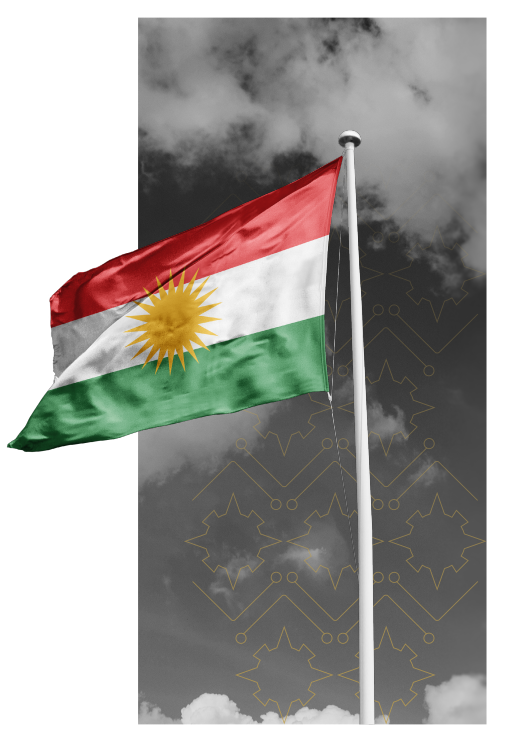TABLE OF ABBREVIATIONS
| API | Application Programming Interface |
| CSA | Core Strategic Activity |
| DAI |
Digital Adoption Index |
| DGI | Digital Government index |
| DIT | Department of Information Technology |
| DNS | Domain Name System |
| GTMI | GovTech Maturity Index |
| ID | Identification |
| IT | Information Technology |
| KRG | Kurdistan Regional Government |
| OECD | Organisation for Economic Cooperation and Development |
| OWASP | Open Web Application Security Project |
| PMO | Prime Minister’s Office |
| WCAG | Web Content Accessibility Guidelines |
It is increasingly clear that excellence in digital government is critical to encourage investment, underpin growth, attract and retain talent and to build a resilient and secure future for our citizens.
This pursuit of excellence is not just an end; it is a means of ensuring we engage and serve our citizens and that we deliver services to them in the way that they need and that works best for them.
Technology is the key to unlocking efficient and effective service delivery from the Government to its citizens and shifting the mindset within government so that it is citizen and business centred. My Government’s digital transformation strategy sets out how we will deliver this.
The strategy and actions that will support it set out a clear path for digital transformation built on enhancing citizen and businessaccess to public services, streamlining government structures and improving processes. The ultimate aim of the strategy is to ensure easy access to government services for all.
At the start of the 9th Cabinet, one of my government’s main priorities was to grant the Department of Information Technology a strong mandate to lead and deliver on Kurdistan’s digital transformation. I remain deeply committed to the objectives of this strategy and will continue to prioritise its implementation.
I commend the work of the Department of Information Technology for their instrumental role in this strategy. All agencies of the Kurdistan Regional Government must work in unison to achieve whole-of-government digital transformation
Masrour Barzani
Prime Minister of the Kurdistan Regional Government of Iraq

Statement From The Department Of Information Technology
Throughout human history, technology and innovation have empowered nations to build better, stronger civilisations. The digital revolution is perhaps the most important event of the 21st century disrupting the status quo of every aspect of our lives as we know it.
Digital technologies can transform how governments interact with their citizens, the private sector and their international partners.
In the modern world, citizens expect a seamless, end-to-end experience and readily accessible services. To achieve these aims, core government digital systems, data exchange layers and a nationwide digital identity management system must be implemented. For such a cross-governmental undertaking, a whole-of-government approach to public sector modernisation needs to be embraced.
As I have said in the past, digitalisation is not an option; either we adapt now or be condemned to stagnation.
For the Kurdistan Regional Government, our Digital Transformation Strategy is the first step on the journey to delivering our ambitious vision; it is a blueprint into the future that requires a collective will from stakeholders across the KRG and investment from our international partners. It will also require a long-term public awareness campaign - to support and empower innovative tech startups, inform the public, and invest in early digital education.
I am confident that the journey laid out through the pages of this strategy marks the emergence of a truly citizen-centric, transparent, efficient and modern government.
It will change Kurdistan in so many ways.
Hiwa Afandi
Head of Department of Information Technology
Executive Summary
Digital transformation is one of the Kurdistan Regional Government’s (KRG) top priorities. The purpose of this paper is to set out and clearly communicate the aims and objectives of our digital transformation strategy. Our strategy has a single, overarching objective:
By 2025, the Kurdistan Regional Government will be a GovTech powerhouse - ranking as one of the top digital governments in the Middle East and Gulf.
This ranking will reflect the progress we make in utilising GovTech – the digitalisation of government services – to support core government systems, enhance service delivery and mainstream citizen engagement.The strategy will be supported by a planning and resourcing process that will build a blueprint for delivery to 2025 and will be centred around:
• an internal blueprint for building internal government digital capacity and capabilities across six Core Strategic Activities
• an external blueprint for prioritising and rolling out digital transformation projects across government as a whole
The document is organised into the following sections:
The introduction sets out the scope and ambition of the strategy, the context within which it has been developed and the best practice and expertise on which the recommendations have been based. It sets out an ambitious vision of the Kurdistan Regional Government as a GovTech powerhouse and one of the top digital governments in the Middle East and Gulf region by 2025. It finishes by explaining the authority vested in the Department of Information Technology to implement the strategy, it considers the policy and legal framework for the digital transformation strategy and the authorities and legal mandate on which its implementation will be based.
This section sets out how the Department of Information Technology will apply international best practice to lead the delivery of digital transformation across the Kurdistan Regional Government. It considers the GovTech policies and digital principles that will inform the implementation of the strategy. It explains how those policies and digital principles will be applied across the six Core Strategic Activities (CSAs) that underpin the delivery of this strategy. Taken together these policies and digital principles represent our agile development and continuous improvement model for delivery of our government’s digital services to citizens.
Our six Core Strategic Activities (CSAs) provide a framework for building the human and technical capabilities of the Department of Information Technology to enable the delivery of the strategy. Here we outline the actions and activities that will be taken for each. Our six CSAs are:
- Digital governance
- Digital architectur
- Human capital
- User centred design
- Security & data privacy
- Procurement
In all six CSAs the primary focus is to build GovTech capabilities, to support
GovTech enablers in the private sector and to build demand for GovTech
solutions within the Government and from citizens.
This section establishes a framework for prioritising external activities and projects that advance the digital transformation strategy. This framework will be used to develop the timebound and resourced blueprint for delivering this strategy.
End Note and Acknowledgements
Ownership and responsibility for this strategy rests solely with the Kurdistan Regional Government – Iraq.
The strategy has been prepared under the auspices of the Department of Information Technology (DIT) in coordination with the Prime Minister’s Office and in consultation with other relevant departments and stakeholders.
The DIT would like to acknowledge the support and advice that the UK Foreign, Commonwealth & Development Office has provided in the development of this strategy.
This support forms part of the UK funded Technical Assistance Facility For Iraq (TAFFI) and has been provided through Adam Smith International and Skotkonung Ltd.

